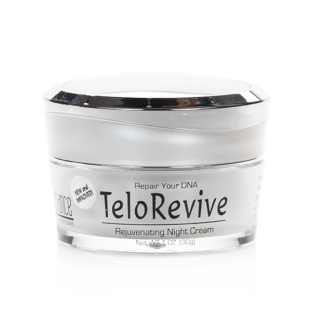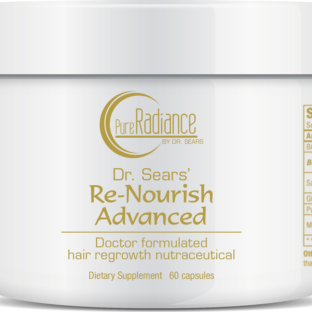Don’t let your doctor prescribe you sleeping pills, even if you have insomnia.
I know it’s tempting, because when you can’t sleep, you’re not just miserable — you’re making yourself unhealthy.
You see, your circadian rhythms — the 24-hour cycles that make up your internal body clock — are involved in everything from sleep and mood disorders to weight gain, a compromised immune system and a variety of diseases.
But it’s a big problem that mainstream doctors aren’t taught nutrition in medical school. That means you might never know that the solution to your sleeplessness is likely to be a simple dietary fix.
I’ve found that the real problem is often that your body is craving a long-ignored mineral. I’m talking about magnesium.
Most doctors will prescribe addictive and often dangerous drugs like Valium, Restoril, Halcion, Prosom, Ambient and Lunesta. Even over-the-counter sleeping aids, like Nytol, Unisom, Sleep-Eze, and Sominex all contain antihistamines, which can have side effects like dizziness, weakness, nausea, headaches and memory loss.
A study funded by the National Institutes of Health found that common prescription sleep aids will get you an average of only 11 minutes extra sleep a night.1
So Americans are shelling out billions of dollars each year for little more than 10 minutes of extra sleep.
I’ve seen lots of frustrated, frazzled and addicted insomniacs in my clinic.
In a minute, I’ll show you how to fix your sleep problems by getting this essential mineral back into your diet. But first let’s take a closer look at how we got into this problem in the first place.
You see, there was a time when your ancestors got everything they needed from nature’s bounty.
But over the last 100 years, essential minerals have been drastically depleted of our farm soil. Artificial fertilizers containing only nitrogen, phosphorus and potassium are now used almost universally to speed up the growth and productivity of crops.
While most minerals have been stripped from our modern world, the loss of magnesium in our soil, water and daily diet has had the most devastating consequences on our health.
Studies show that 60% of Americans aren’t getting enough magnesium.2 And that’s dangerous.
This mineral famine has triggered a shock-wave of sleep and anxiety disorders, as well as an epidemic of chronic disease.
Let me explain…
Magnesium is necessary for more than 300 enzyme systems that regulate biochemical reactions in your body.
One study followed 4,203 people over 10 years, and found that the death rate from any cause was 10 times greater for those most deficient in magnesium.3
In addition to insomnia, lack of magnesium causes:
- Anxiety and depression;4
- Muscle cramping and chronic pain;
- Headaches and migraines;5
- Heart disease.6
And lack of magnesium is one of the main reasons 70 million Americans are facing a sleep crisis every night.7
It’s also your body’s natural blood-vessel relaxer.8
That’s why it relieves muscle tension, so you can relax into sleep. I think of magnesium as nature’s all-natural, non-addictive tranquilizer.
When you don’t have enough magnesium, your brain can’t shut down. Magnesium also reduces cortisol, the stress hormone, which keeps your mind racing at night.
And magnesium is critical for your brain to stabilize your body’s energy systems and to regulate your sleep cycle.9
The first piece of advice I give patients, is to avoid:
- Sugars and processed foods: Not only do sugars prompt your kidneys to excrete magnesium, they replace nutritious foods in your diet, and actually consume nutrients when digested.
- Coffee, soda and alcohol: These also cause your kidneys to excrete magnesium, and the phosphates in sodas bind with magnesium and carry it out of your body through urine.
- Calcium supplements: These can make it harder for your body to absorb magnesium. But, at the same time, magnesium supplements improve your body’s use of calcium.10,11
You can get more magnesium in your diet by eating:
- Nuts and seeds: Brazil nuts, almonds, pine nuts, black walnuts, pistachios, sunflower seeds and pumpkin seeds are rich in magnesium.
- Natural sea salt: This is loaded with minerals, including magnesium. Stay away from processed salts that are stripped of their mineral value.
- Dark green, leafy vegetables: Spinach, beet greens and chard are especially rich in magnesium.
- And these foods: Dark chocolate, avocados, bananas, organic yogurt and figs are also good sources of natural magnesium.
But it’s hard to get enough magnesium in your diet. So I also recommend magnesium supplements.
You can find capsules online and in most health food stores. I recommend between 600 and 1,000 mg a day.
To target insomnia, I recommend taking magnesium an hour before bed. I also tell my patients to take it with vitamin B6, because it helps your cells absorb and store this essential element.
I recommend a powdered magnesium citrate formula. The solution dissolves in water, so it will be absorbed by your body much better than capsules or pills.
At the Sears Institute for Anti-Aging Medicine, I offer patients nutrient-specific IV therapies. The magnesium IV is the fastest way to treat your insomnia, because it goes straight into your bloodstream.
If you’re interested in IV therapy at my clinic, please call 561-784-7852.
To Your Good Health,
![]()
Al Sears, MD, CNS
1. Stephanie Saul, “Sleep Drugs Found Only Mildly Effective, but Wildly Popular,” New York Times, October 23, 2007.
2. “How Much is Too Much? Appendix B: Vitamin and Mineral Deficiencies in the US.” Jun 19. 2014
3. Reffelmann T, Ittermann T, Dörr M, Völzke H, Reinthaler M, Petersmann A, Felix SB. “Low serum magnesium concentrations predict cardiovascular and all-cause mortality.” Atherosclerosis. 2011 Jun 12.
4. Eby, George. “Rapid recovery from major depression using magnesium treatment.” Med Hypotheses. 2006;67(2):362-70. Epub 2006 Mar 20.
5. Duma, Paula K. “Easy Fix: Magnesium Deficiency and Migraines.” Nov 18, 2014.
6. PR Newswire. Research Uncovers Low Magnesium Is Key Link to Heart Disease. Jan 31. 2013.
7. Institute of Medicine. Sleep Disorders and Sleep Deprivation: An Unmet Public Health Problem. Washington, DC: The National Academies Press; 2006.
8. Institute of Medicine (IOM). Food and Nutrition Board. Dietary Reference Intakes: Calcium, Phosphorus, Magnesium, Vitamin D and Fluoride.Washington, DC: National Academy Press, 1997.
9/ Chikahisa, Sachiko. Sei, Hiroyoshi. “The Role of ATP in Sleep Regulation.” Dec. 27, 2011.
10. Wester PO. Magnesium. American Journal of Clinical Nutrition. 1987; 45:1305-12.
11. Seelig MS. The requirement of magnesium by the normal adult: Summary and analysis of published data. American Journal of Clinical Nutrition. 1964;14:342-90.








